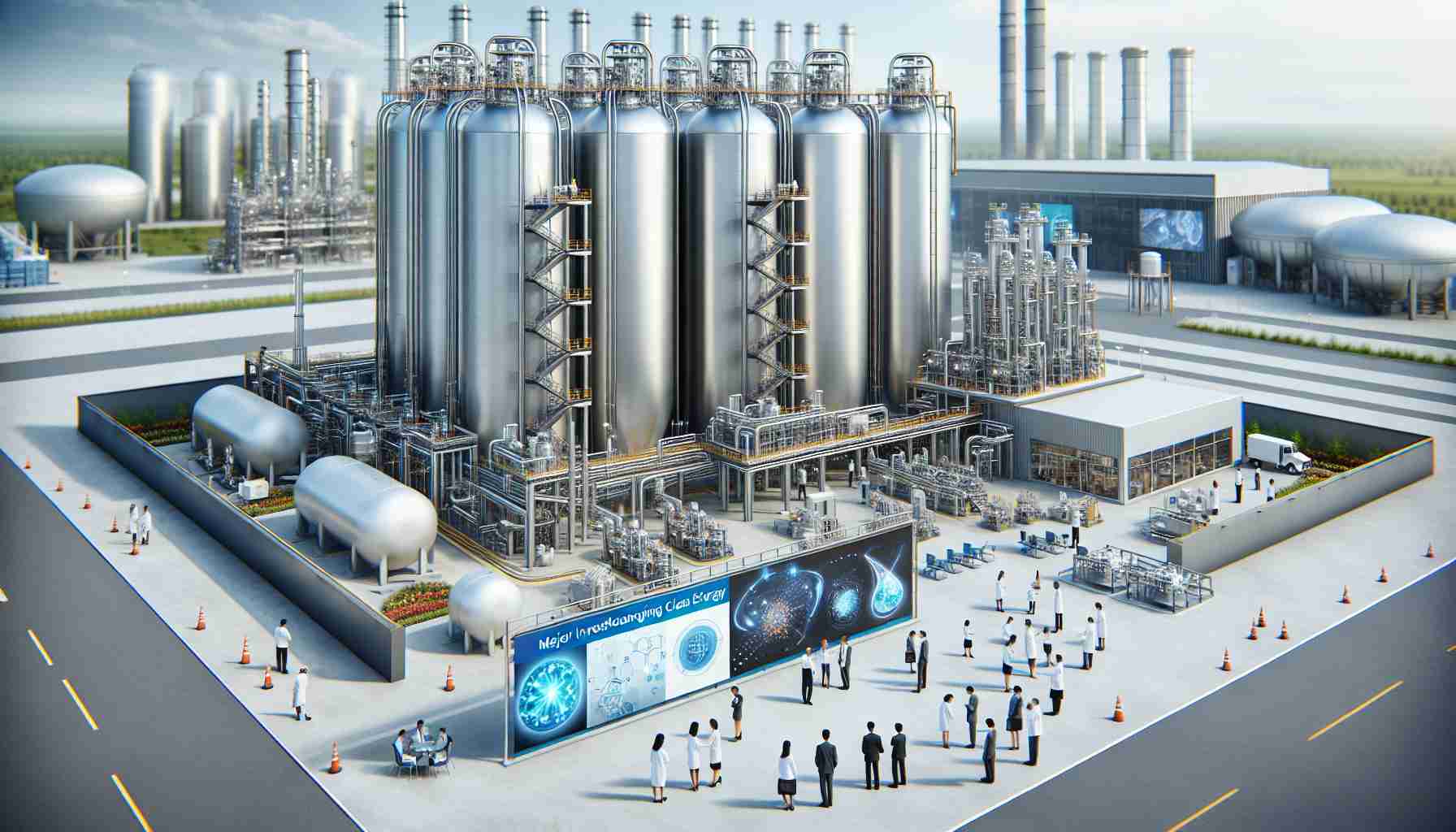The United States is stepping up its game in the clean energy sector with a significant loan guarantee aimed at driving innovation in hydrogen fuel production. The Department of Energy has greenlit a remarkable $1.66 billion loan for Plug Power Inc.’s subsidiary, Plug Power Energy Loan Borrower, LLC. This funding will pave the way for the establishment of up to six new facilities that will harness advanced electrolyser technology to create clean hydrogen fuel.
As a key player in the national energy transition, hydrogen stands out due to its versatility and zero-emission profile. Its capacity to decarbonize traditionally difficult sectors—including heavy transport, manufacturing, and aviation—marks its importance in achieving a sustainable energy future. Clean hydrogen can replace fossil fuels in various applications, from powering fuel cell electric vehicles to revolutionizing industrial processes like steelmaking.
The loan guarantee is a landmark decision that aims to revolutionize hydrogen production methods. By reducing greenhouse gas emissions by up to 84% compared to conventional techniques, the initiative demonstrates a powerful commitment to sustainability.
Plug Power’s innovative electrolyser technology, capable of efficiently converting renewable energy into hydrogen, will play a crucial role. This project is projected to create hundreds of jobs and engage local communities, fostering a more environmentally conscious society.
Ultimately, this endeavor is not merely an investment in technology; it’s a strategy to establish the U.S. as a leader in the burgeoning clean hydrogen economy.
Transformative Energy Horizons: The Broader Implications of Clean Hydrogen Investment
The United States’ significant investment in hydrogen fuel production is indicative of a deeper shift in both the energy landscape and economic priorities. Clean hydrogen technology is becoming a cornerstone of the global push towards sustainability, profoundly impacting society, culture, and the economy. As communities shift from fossil fuel dependence to renewable energy sources, we may witness enhanced energy security, potentially stabilizing local economies previously vulnerable to volatile oil markets.
This pivot toward hydrogen also holds remarkable implications for environmental sustainability. The transition to clean hydrogen can catalyze reductions in greenhouse gas emissions on a monumental scale—including achieving net-zero goals set by both public entities and private corporations. As industries recognize the dual benefit of operational cost savings and environmental responsibility, adoption of hydrogen solutions could accelerate rapidly, heralding a new era of green innovation.
Furthermore, emerging trends suggest that clean hydrogen will permeate various sectors, from energy storage advancements to the creation of sustainable urban centers. Long-term, the establishment of a robust hydrogen economy may well dictate global energy dynamics, placing nations with advanced hydrogen infrastructure at a significant geopolitical advantage. As this technology matures, it could redefine traditional industries and open up new avenues for economic growth, raising the bar for global competitiveness in the battle against climate change.
Revolutionizing Energy: The U.S. Push for Clean Hydrogen Technology
The United States is making significant strides in the clean energy sector with a historic $1.66 billion loan guarantee aimed at transforming hydrogen fuel production. This funding has been sanctioned by the Department of Energy for Plug Power Inc.’s subsidiary, Plug Power Energy Loan Borrower, LLC, with plans to establish up to six new facilities. These facilities will utilize cutting-edge electrolyser technology to generate clean hydrogen fuel, a pivotal step towards a sustainable energy future.
Why Hydrogen Matters
Hydrogen is increasingly recognized for its versatility and potential to achieve zero emissions. Its ability to decarbonize hard-to-abate sectors, including heavy transportation, manufacturing, and aviation, underlines its crucial role in the global transition toward renewable energy. Clean hydrogen has the potential to replace traditional fossil fuels in various applications, including:
– Fuel Cell Electric Vehicles (FCEVs): Hydrogen powers vehicles with zero tailpipe emissions, offering a sustainable alternative to gasoline and diesel.
– Industrial Processes: Industries like steelmaking can utilize clean hydrogen, significantly reducing their carbon footprint.
Key Features of the Initiative
– Significant Emission Reductions: The project aims to cut greenhouse gas emissions by up to 84% compared to traditional hydrogen production methods.
– Innovative Electrolyser Technology: Plug Power’s state-of-the-art technology converts renewable energy into hydrogen efficiently, marking a breakthrough in clean fuel production.
– Job Creation: The project is expected to generate hundreds of jobs, promoting local economic growth and engaging communities in the clean energy transition.
Sustainability and Market Trends
The increased investment in hydrogen technology signals a broader shift towards sustainability within the energy market. As businesses and consumers become more environmentally conscious, the demand for clean energy solutions like hydrogen is likely to soar. This initiative positions the U.S. to not only meet domestic energy needs but also to compete in the global clean hydrogen economy.
Potential Challenges and Limitations
While the initiative holds great promise, several challenges need to be addressed:
– Infrastructure Development: Building the necessary infrastructure to support hydrogen production and distribution will require substantial investment and planning.
– Market Adoption: Encouraging industries to transition to hydrogen over established fossil fuel methods may face resistance due to existing supply chains and technology.
– Competition: As global interest in hydrogen increases, the U.S. will need to innovate continually to maintain its competitive edge.
Insights and Future Predictions
Industry experts predict that the clean hydrogen economy could grow dramatically over the next decade, with significant investments accelerating technological advancements. This loan guarantee not only reflects the U.S. government’s commitment to clean energy but also lays the groundwork for establishing a robust market for hydrogen, potentially making it a linchpin in global energy strategies.
For ongoing updates on this evolving sector, consider visiting [Plug Power](https://www.plugpower.com) for the latest information and innovations in hydrogen technology. As the clean energy landscape transforms, stakeholders must stay informed and engaged to leverage the benefits of this revolutionary shift toward sustainability.


















